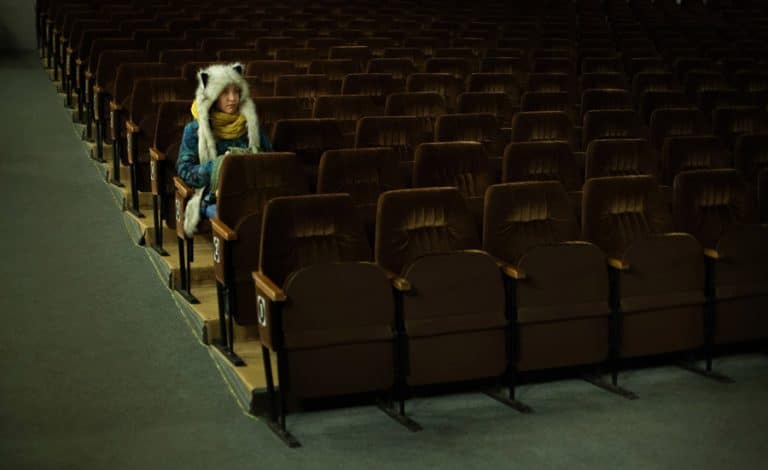TikTok clubs are opening in US high schools, could this be the future of teaching?
There is no doubt that TikTok is exploding. Rapidly. What began as an infatuation among teenagers in China and across Southeast Asia has spread like wildfire throughout the US over the past year and a half. According to SensorTower, the app, which is owned by the Chinese tech conglomerate ByteDance, has been downloaded over 1.4 billion times across the world. ‘What’s this whole Tik Tok craze about?’ remains a frequent question among millennials, often to be followed by ‘should I download it?’. Even as the basic facts about TikTok become more widely known, the lingering debate is whether or not to join the circus. What’s the point? Surprisingly, teachers across the US are beginning to see the value of the platform and are incorporating it into the school system with open arms.
The vast majority of TikTok’s popularity is among gen Zers, between 12 to 20 year-olds to be exact. Adults, for the most part, still gape at this 15-second musical skit phenomenon with a fusion of wonder, admiration, bewilderment, and dread. The upbeat, trendy, and, let’s face it—frequently mindless character of TikTok skits attracts people mostly in their teens, looking to goof around, be silly, be noticed, and have a good time.
A recent piece by The New York Times reveals that in high schools across the US, the cultural and mental chasm between young TikTokers and adults is gradually closing, with the proliferation of TikTok clubs and the incorporation of the app into the curriculum. High schools have, for quite some time, been a breeding ground for TikTok, with students shooting skits in hallways, classrooms, and even school buses—making fun of the universal teenage experience and responding to challenges set by their peers from across the world.
Teachers saw this new platform as an educational and recreational opportunity, and supported the creation of after-school TikTok clubs, in which kids meet to discuss current trends on the app and make videos themselves. Students are accompanied by adult advisers who supervise their activities, and often contests are being held to select the club’s best TikTok. Some teachers reportedly utilised this trend as a way to immerse kids with various fields of study. A high school teacher from San Jose, California, for instance, had her students make TikTok skits about Newton’s Law for extra credit. Other teachers hail the app as a platform encouraging creativity and genuine self-expression. “I think you just have to engage students in whatever they’re interested in,” Ms Gordon, the principal of West Orange High School in Florida, told The New York Times. “On other media you’re hiding your flaws,” Mr Callahan, the adviser of the school’s TikTok club said, “here you’re showing them off.”
But for all its creative and artistic acclaim, TikTok comes with a slew of challenges, some of which are pointed out by high school teachers witnessing the extravaganza first-hand. A Spanish teacher from a South Carolina high school, for example, pointed out that TikTok isn’t immune to the plagues of bullying that fester in other social media apps.
It’s also been noted that TikTok’s format can potentially exacerbate its users’ need for attention at the expense of uninhibited self-expression. With TikTok trends rising and falling in the blink of an eye, it can be easy for users to get caught up in the race to stay relevant and go viral.
Another major issue, which isn’t exclusive to TikTok but is being perpetuated and expanded through it, is the commercialisation of an increasing amount of content on social media. As the popularity of TikTok surges among young people, countless brands flock to the new platform in search for potential promoters for their products. This fact alone punctures holes in the theory that TikTok is the long-awaited social media app where people could simply be themselves and create content for the sake of creating. How authentic can this content ultimately be if more and more of it is generated with the aim of selling us stuff? We clamour for climate justice and demand to save the future of our children, yet prime our youths to become an army of brand ambassadors—elevating consumerism culture to new heights.
Yes, TikTok is happening, y’all. It is spreading and growing, and will undoubtedly alter the way social media functions—placing viral trends and the consumption of random content ahead of the cosy friends-centred feed.
So, dear millennial, as a relic of a different era, who did not grow up TikToking, you have the incredible privilege of deciding how you wish to interact with this app, if at all. Sure, you can try to cash out on it and poach salespeople for your brand, but must brace yourself for the psychological and environmental consequences that feeding into this system will have. You can also kick back and decide to enjoy some uplifting entertainment—assuming you get the joke. Perhaps it’s even OK to give this one a pass and let the kids go nuts. Whatever the choice is—be sure it is you who make it.





